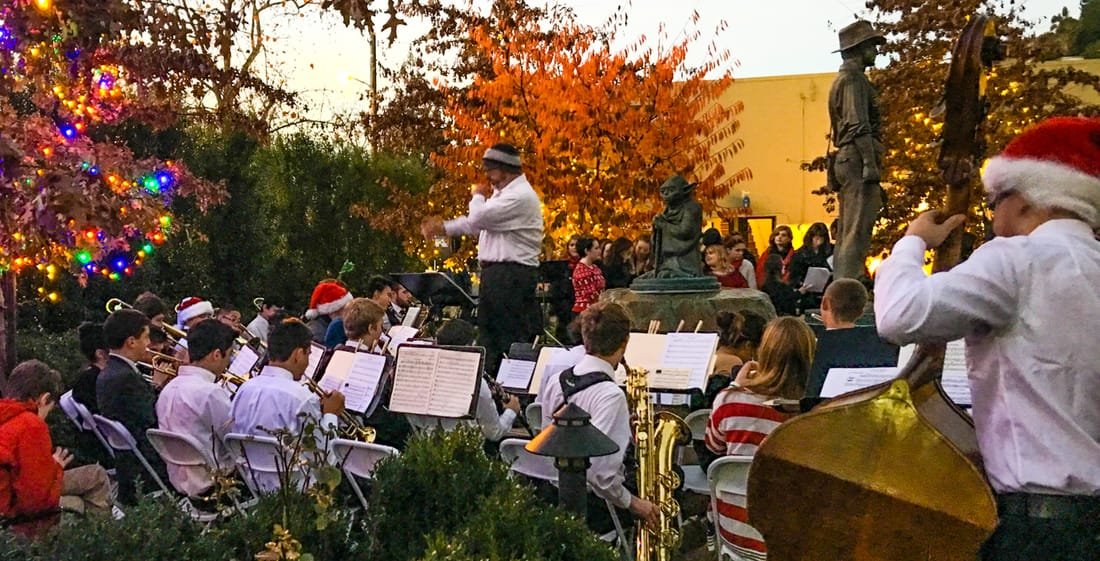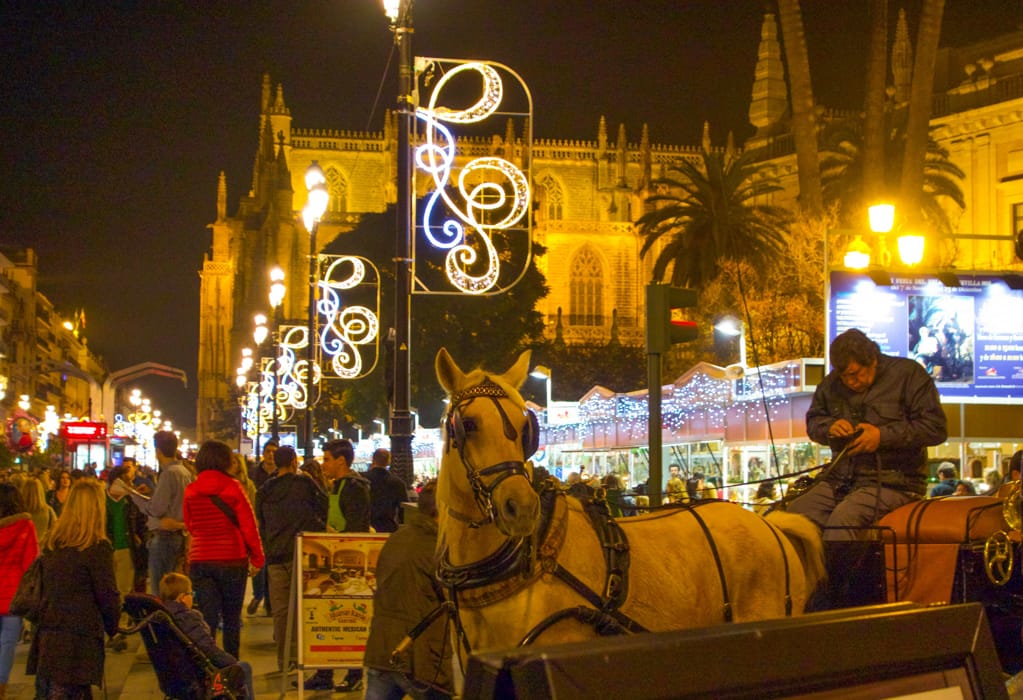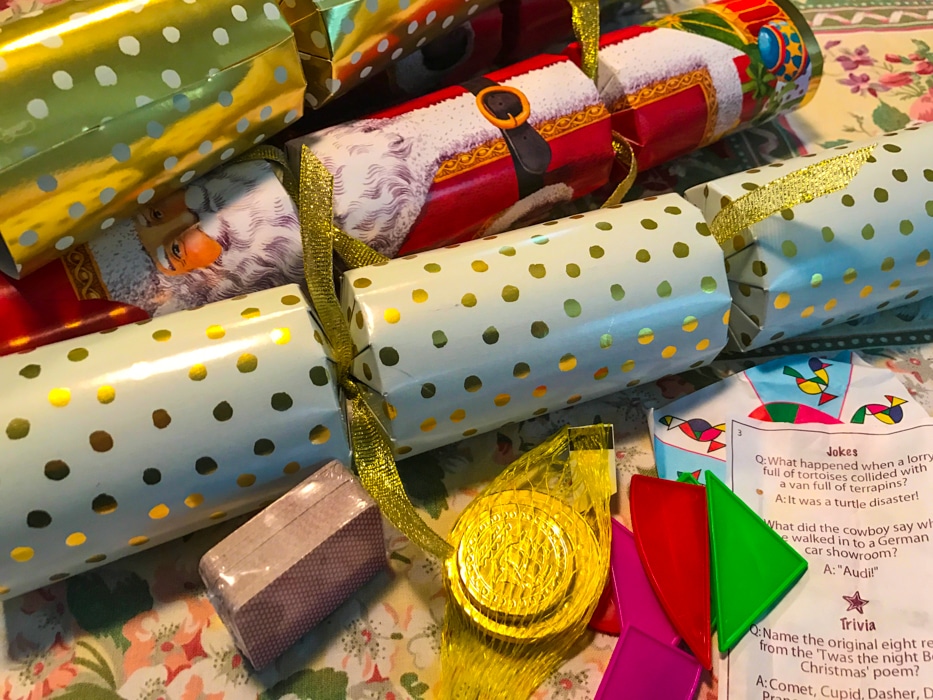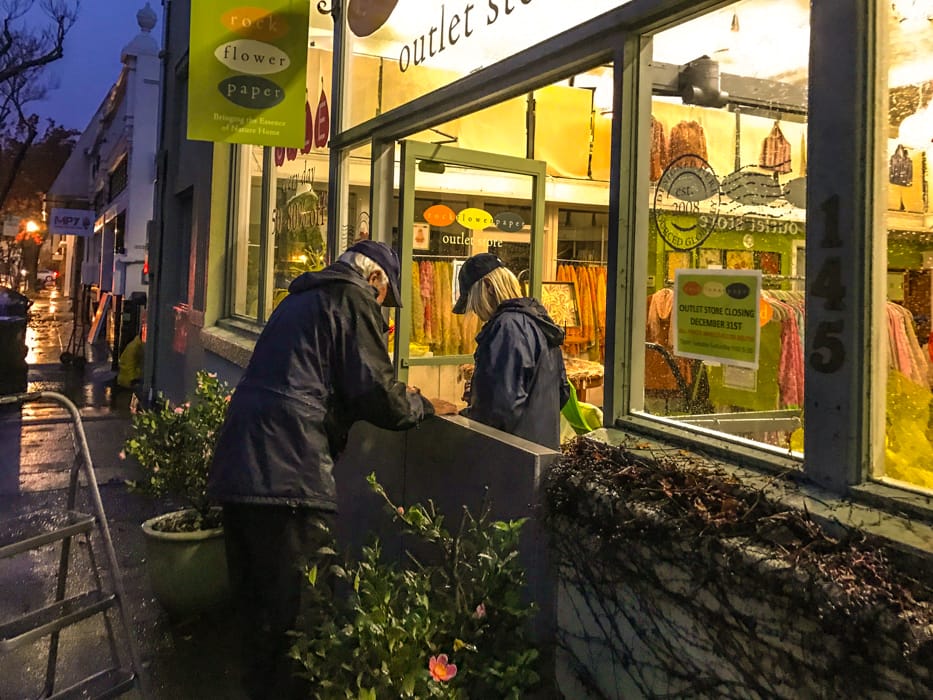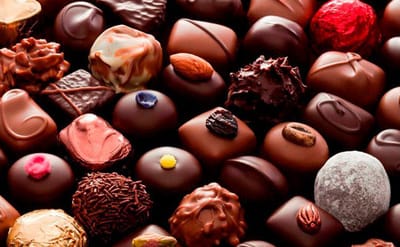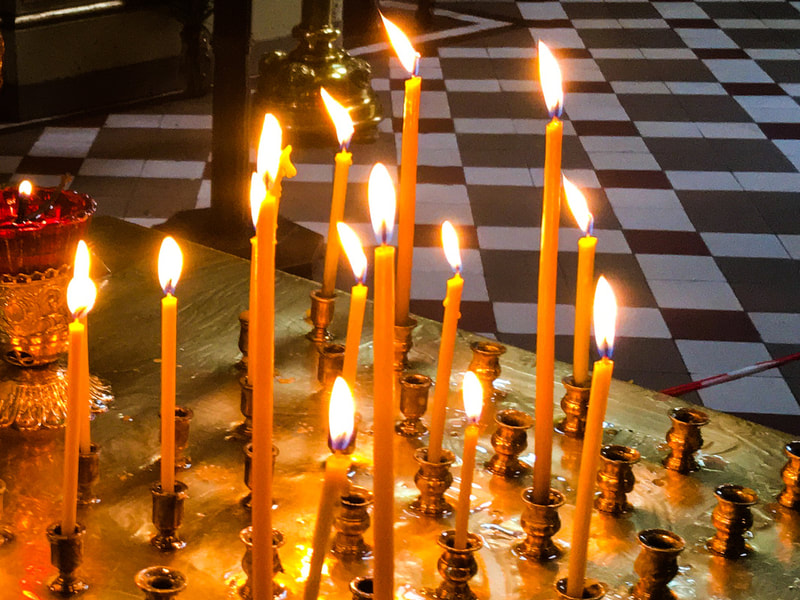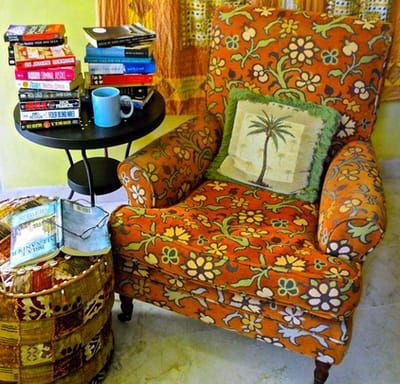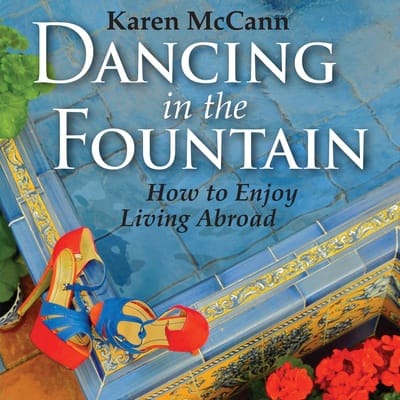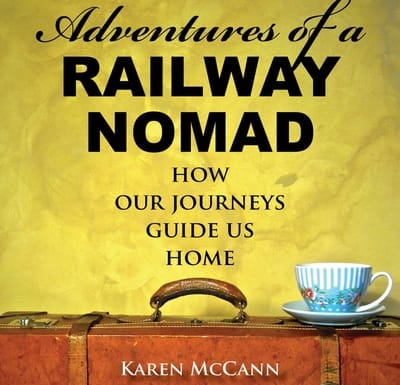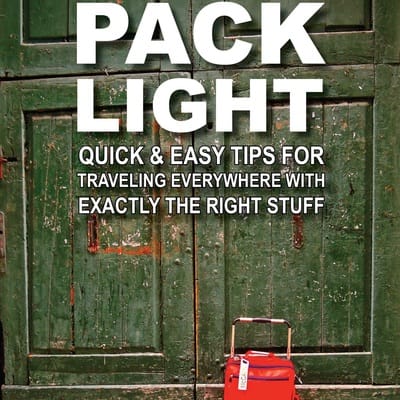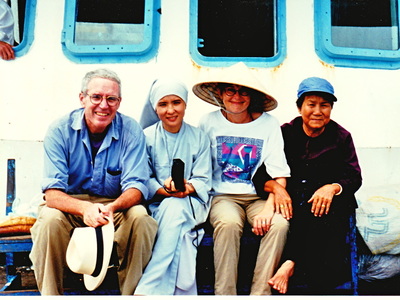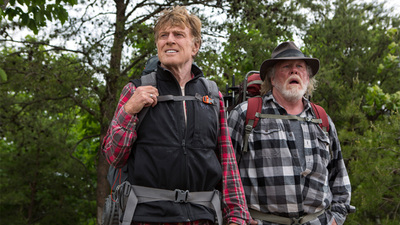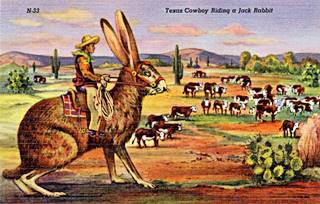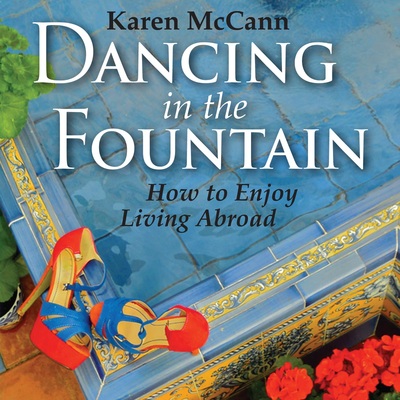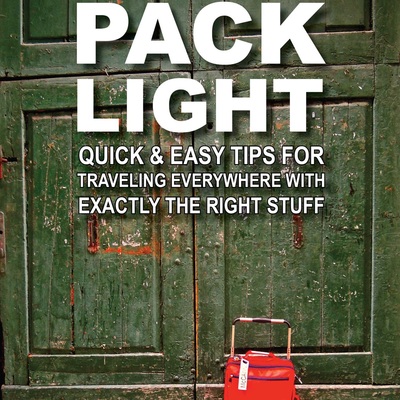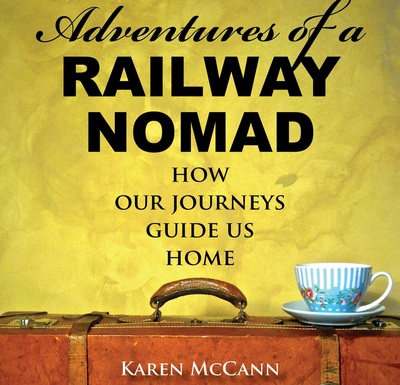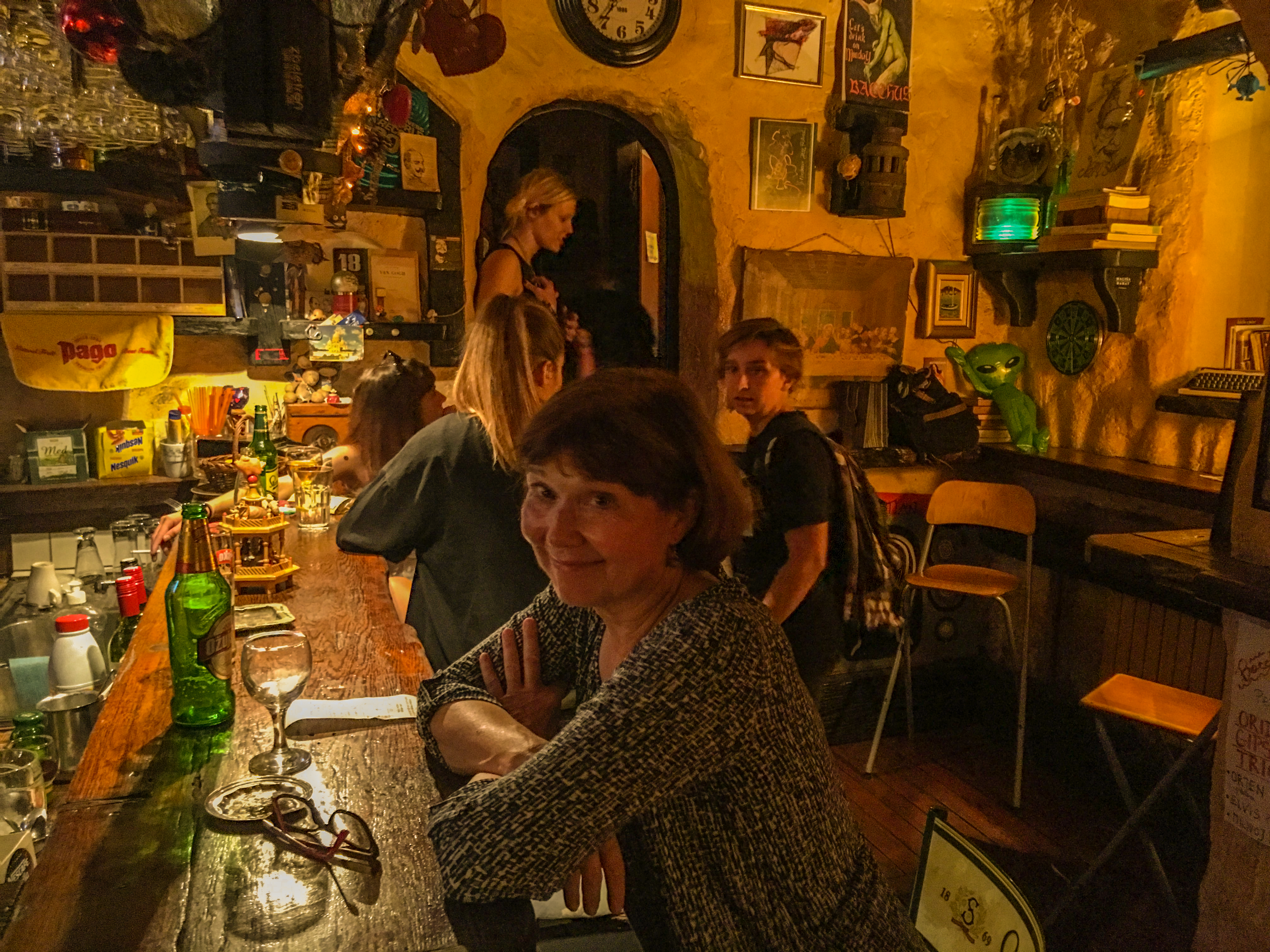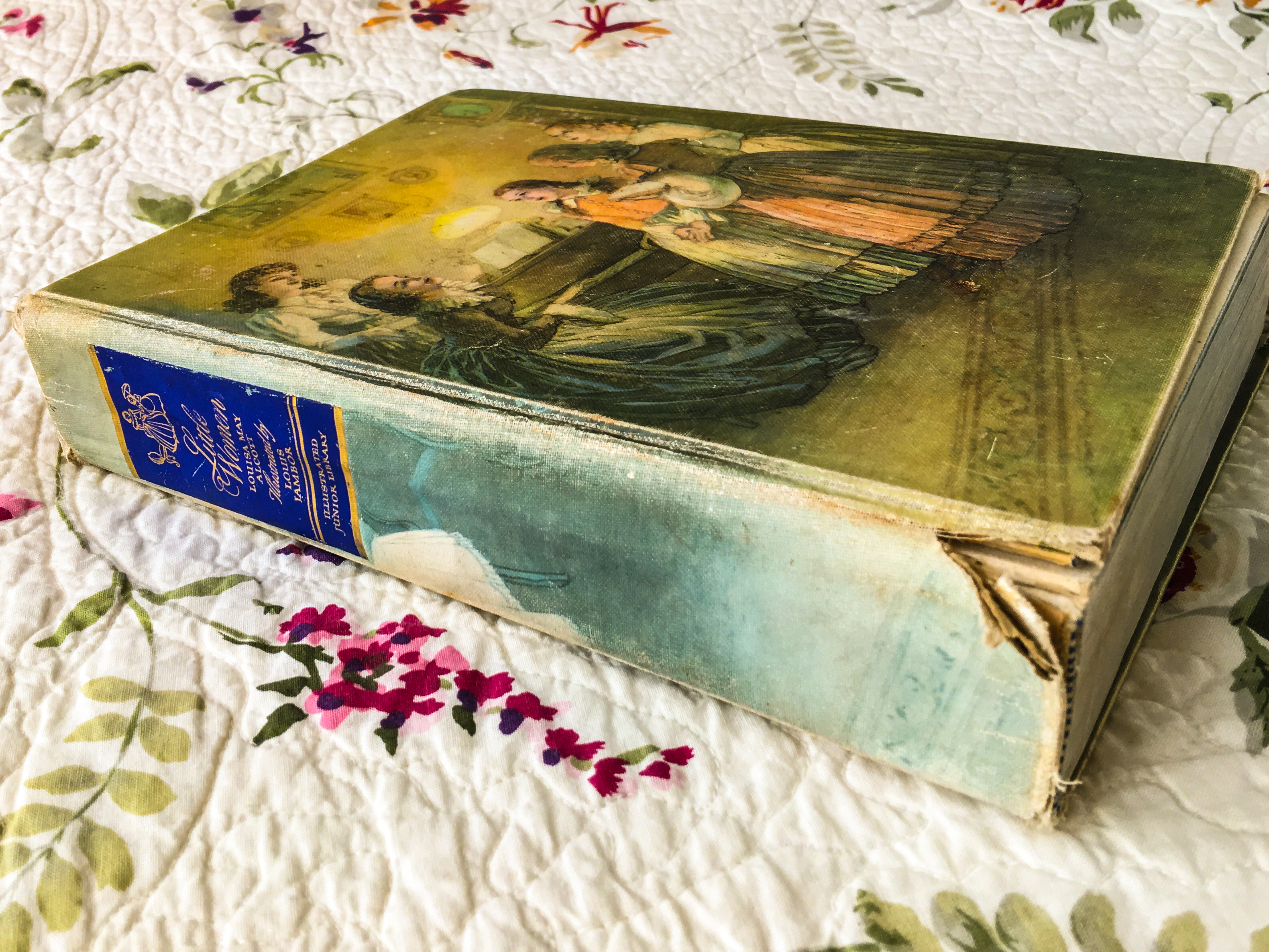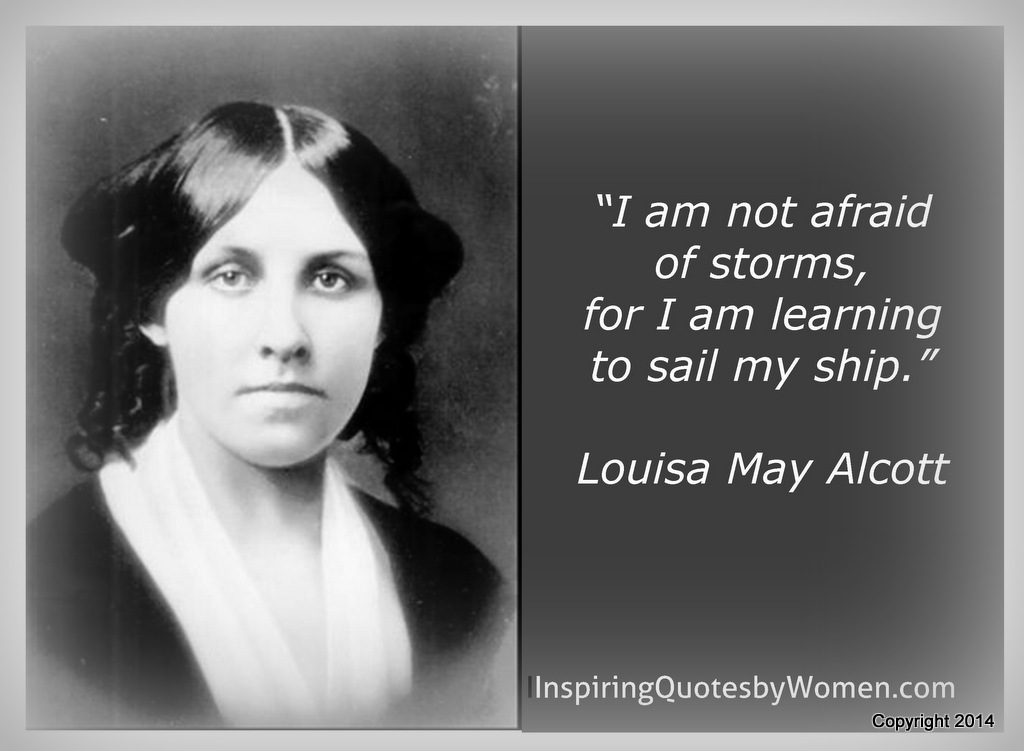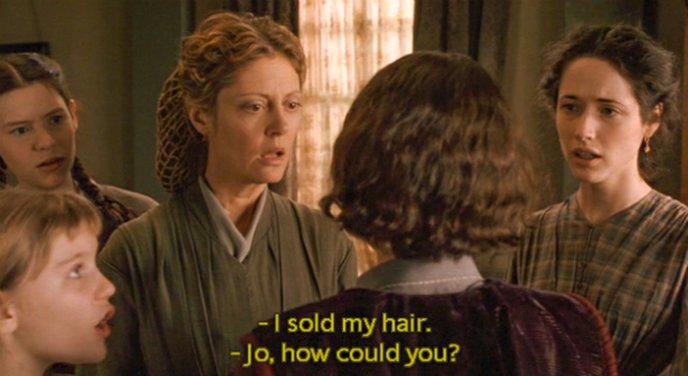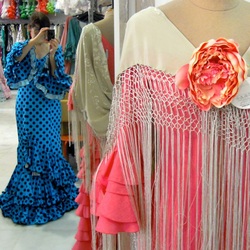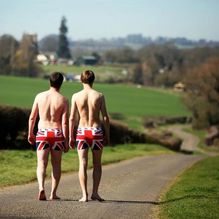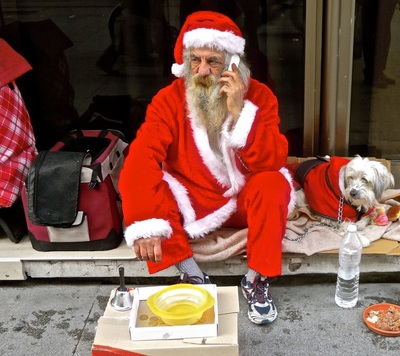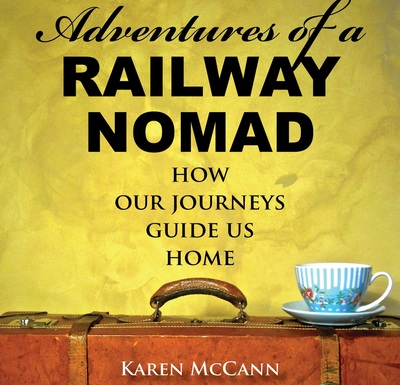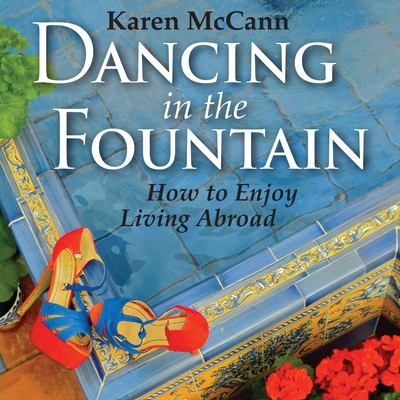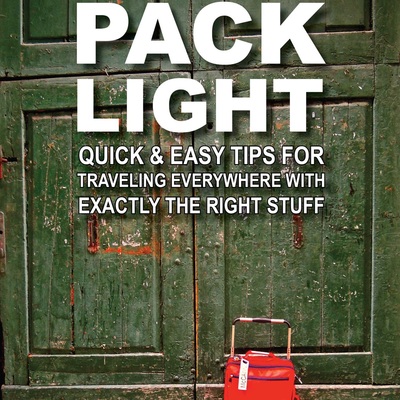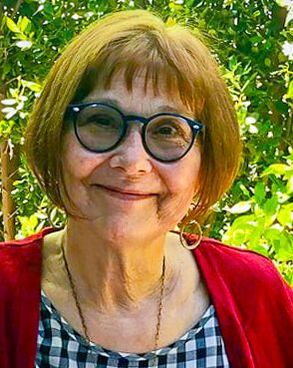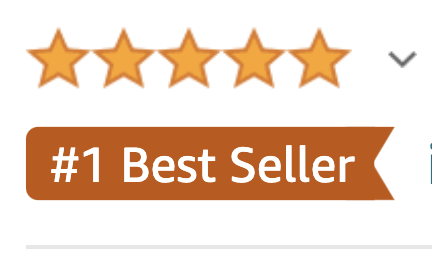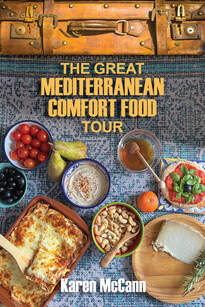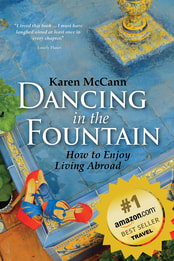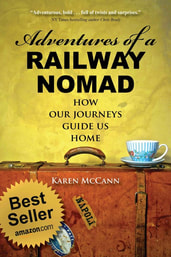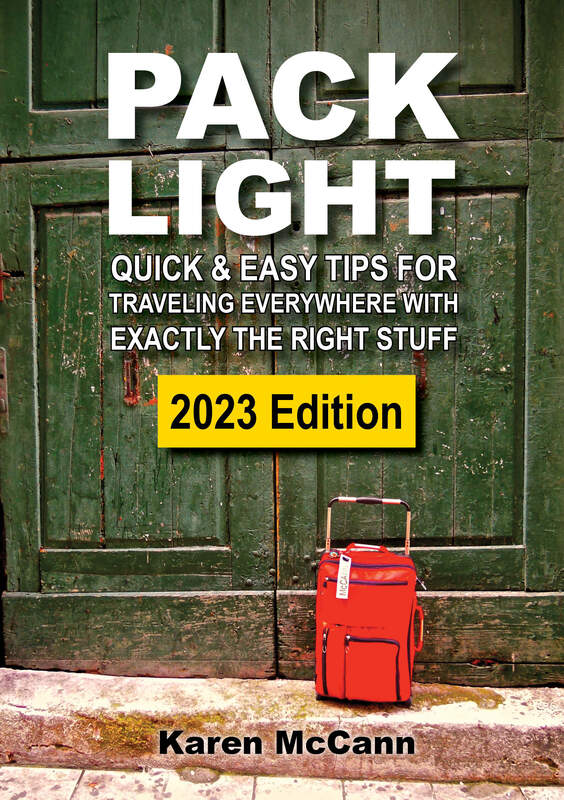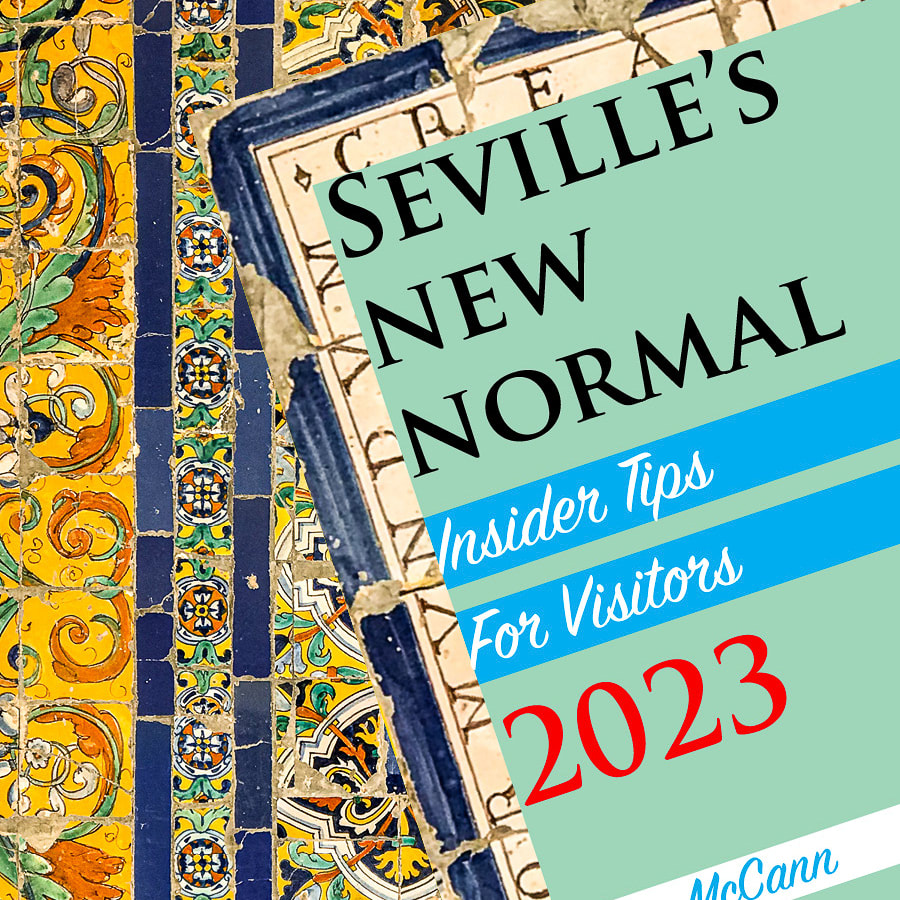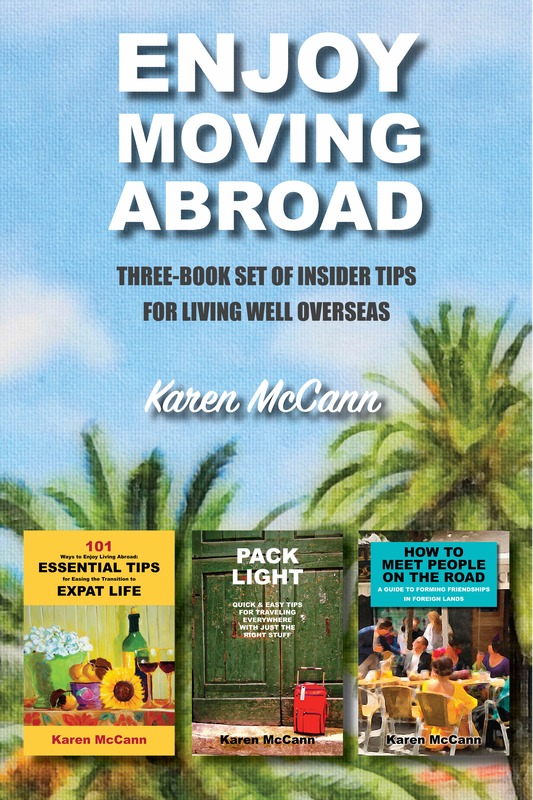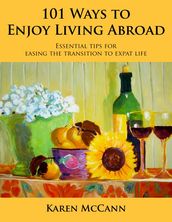|
About four o’clock Sunday afternoon, Rich and I strolled out of our house in downtown San Anselmo, California and ran into a neighbor in her eighties. She was jauntily attired in pajamas, bathrobe, and slippers to walk her dog. “Some things never change,” Rich murmured happily. Embracing eccentricity is one of the hallmarks of our little town, which is just 20 miles north of San Francisco and about 20 degrees off kilter from mainstream society. People often show up at the local coffee house in outfits that include a sleepwear element, such as slippers, flannel PJ bottoms, or a robe flung over jeans and shirt, but it’s rare to encounter what we’ve come to call “the full San Anselmo” on the street in broad daylight. “It’s wonderful to see people honoring the traditions,” I agreed. Tradition has been much on my mind in the past weeks, as this is the first time in 12 years that Rich and I are spending the holidays in the US, and the first time in 30 years we’ve been with family in California. We’ve never decorated this house for the holidays and have no idea where locals go (besides the couch in front of their own TV) to ring in the New Year. When people comment on how happy we must be that we’re home for the holidays, I nod and smile but don’t feel that actually applies to us at all. Our tradition is to gather with friends in Seville on December 25 — which, curiously enough, is one of the few days the Spanish don’t throw a fiesta. After weeks of parties and dinners, culminating in a lavish feast with relatives on Christmas Eve, most Spanish families are simply too exhausted to go on. Gift giving, that powerful motivator to gather with your nearest and dearest, takes place on January 6, Three Kings Day, so Spanish families tend to take a bit of a breather until then. My friends, however, are made of sterner stuff. Every December 25, Rich and I host perhaps two dozen guests, from babies to octogenarians, a mix of locals with no family obligations and expats in the mood for holiday cheer. By three o’clock our apartment is a madhouse, the hall filled with shrieking children, the kitchen jammed with pot luck dishes, the feeble old electrical system struggling, not always successfully, to power up the oven, stovetop, and microwave. Before we pass the turkey, we hand around holiday crackers, those paper tubes you pop open to get a flimsy paper crown, a cheap toy, and a lame joke such as, “Q: What did the cowboy say when he walked into the German car showroom? A: Audi!” Yesterday I was thinking of Christmases past and wondering about this year’s celebration. So I called my sister Kate, who’s hosting the family on Christmas Day at her home in Silicon Valley. “People will start arriving around three,” she said. “There will be about two dozen of us, including kids. Everyone is bringing a pot luck dish. It will be a total madhouse.” So it seems Christmas won’t be so different this year after all. As this particularly crazy year draws to a close, many of us are wondering what lies ahead. Everyone is predicting that 2017 will be a challenging year for the nation and the world. Of course, “everyone” has been wrong before, so maybe the next 12 months will be filled with unprecedented peace, prosperity, and good will towards all. But just in case that doesn’t happen, if we are indeed entering turbulent times, then it’s up to us to help each other weather the storms. I don’t know where I’ll be a year from now. (Does anyone?) Perhaps I’ll find myself in Seville celebrating with friends, or gathering with family in California, or wandering the streets in my pajamas, bathrobe, and slippers. But as the Japanese poet Matsuo Bashō reminds us, “Every day is a journey. And the journey itself is home.” Looked at from that point of view, wherever I am, this year or next, I'll be home for Christmas. If only in my dreams. Amigos, I'm taking the next two weeks off to enjoy the holidays with family and friends, so I won't be posting on this blog again until early January. In the meantime, I'd love to hear your thoughts on the holidays, the year just past, and what's coming up in 2017. Cheers!
20 Comments
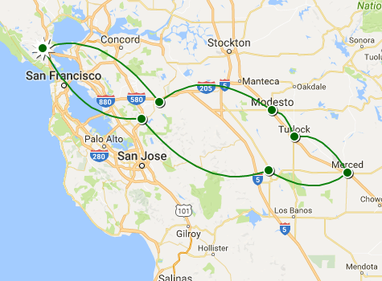 Our route on the "In Search of America" tour Our route on the "In Search of America" tour When you live abroad, you always worry that you might start to feel a bit disconnected from your home country. America is something you have to stay in practice for, and I don’t want to lose my touch. Arriving in my native California just in time for the recent election, I was — like nearly everyone else — blindsided by the results. On TV and the Internet, pundits keep describing the US as hopelessly divided, with people on either side existing in realities so separate, we barely share a common language. “Say it ain’t so!” I muttered to Rich after one such broadcast. Then I thought a minute. “What do you say we go check it out for ourselves? Take a road trip. Talk to people. Listen to people. See if the old e pluribus unum spirit lives on.” “I’m in! How about the Central Valley?” This is a swath of agricultural land roughly the size of Denmark that runs the length of California’s interior. “Perfect! I could write a piece about roadside attractions. They always have tons of them along those rural highways — you know, the world’s biggest ball of string, diners shaped like hot dogs, stuff like that. It will give us an excuse to meet people and find out how they’re doing, what they’re thinking.” So on Monday of this week, Rich and I threw our suitcases in the back of our red VW and headed southeast. A Spanish friend wrote to wish us luck, adding, “Be real nice and carry an assault rifle.” But I am delighted to report that far from needing any weapons, we could not have been welcomed more warmly. We talked with dairymen, firefighters, farmers, artists, photographers, college students, grandparents, a private detective, museum docents, waitresses, a car wash guy, and many bartenders. In funky bars and old-style diners, where women with starched hairdos poured free coffee refills and called me “hon,” we sat at the counter, read the paper, and struck up conversations. One night in the Kewl Cats karaoke bar, we joined the weekly trivia contest, and the other players could not have been friendlier — or more compassionate about our pathetic scores. Everyone urged us to come back the following week; I wish we could. And the roadside attractions? Classics! We saw the ill-fated totem pole that was treated with disrespect so the artist, a member of the Ojibwa tribe, cursed the town sewers; the world’s longest-burning lightbulb (1 million+ hours); diner stools that once held the backsides of President and Mrs. George H.W. Bush. We visited the building shaped like a giant bulldozer, the haunted military plane “Hell Raz'r,” and the small town that once elected a dog as mayor; his slogan — "A bone in every dish, a cat in every tree, and a fire hydrant on every corner" — kept him in office 13 years. On Pearl Harbor Day, we went to the Merced Assembly Center where our friend Nobie and thousands of other Japanese Americans awaited their assignments to internment camps. We found the name of one of Nobie’s relatives on the wall, below a picture of Ronald Reagan, signing a formal apology, and the words, “Never Again … May We, As A Democratic Society, Never Forget the Injustice.” Visiting Central Valley diners, dive bars, and roadside attractions, we learned a lot. Here firefighters commute three hours between their job and affordable housing. Merced, home of the Kewl Cats trivia contest, suffered a 62% collapse in median home prices during the recession, the worst drop in the entire country. In town after town, we passed block after block of empty stores. Agriculture, the region’s mainstay, is now mostly in the hands of corporations. “It costs $100,000 for a dairy permit,” a dairyman told us. “Who can afford that?” Six years of drought aren’t helping. “The water table on my land dropped from five feet to thirty,” a melon farmer said. These are hungry, thirsty times, and the wealth flooding through Silicon Valley just hours away barely trickles to the outermost edges of Central Valley. I didn’t ask anyone who they voted for, and rarely got a hint either way; Rich thinks it’s likely a 50-50 split. I can tell you this: these are good people weathering bad times. Despite living in circumstances that have become increasingly unsustainable for years, they never expressed a word of anger (well, maybe a little grousing at the government, as we all do) and certainly no self-pity. I didn’t see any swastikas or malicious bumper stickers. Mostly I saw men and women with true grit and considerable concern about the future. I suspect many voted for Trump as a Hail Mary move, a desperate attempt to disrupt a system that no longer serves them or their community. Everyone seemed to be holding their breath about what’s going to happen when our new president takes the reins. So did I find the America I was looking for? Yeah, I did. I wanted to restore my sense of belonging to this vast, diverse, contradictory population of ours. I needed to know we could still exchange opinions freely over bottomless cups of coffee, and reach out to the person on the next bar stool, across that divide the media is always talking about. Yes, we can still get to common ground. I realize one road trip isn’t going to have much effect on a population of 319 million people, but it’s made a world of difference to me. “I always plan trips to the nth degree,” a reader wrote me last week. “But we've decided that for our Greek Island trip next year, we're just going to follow your lead (plan ahead, but don't book anything in advance) — we're just going to hop on the ferry and go. This is a bit out of my comfort zone, but I'm equally excited and nervous about it. “I've also loved reading about your approach to connecting with people while travelling, and it has really coloured my approach on this current trip. I'm a bit of an introvert, but I've been making more of an effort to reach out to people we meet along the way, and I've been amazed by how open and eager people are to connect with travellers circling in their orbit. … Thanks for inspiring me.” I’m constantly astonished and deeply gratified by the number of people who write to tell me that my words somehow open up new possibilities for their travels and their lives. It always makes me stop and send up a prayer of gratitude for all the writers whose ideas were so startling that they made me lift my eyes from the page, stare blankly into the distance, and say, “Oh, my God. I could do that!” I still have the first book that jolted me awake to big new possibilities: Little Women, by Louisa May Alcott. My mother gave me a copy for Christmas when I was ten, and having passed through the hands of my younger sisters as well, the book is now tattered, faded, and dog-eared, making it all the more precious. There’s no other quite like it. Those who haven’t read Little Women may think of it as a charming children’s story, and it is. But for many of us, reading it was a coming-of-age experience. The romantic plotline doesn’t turn out at all the way you imagine. Someone you really care about dies. Girls are expected to work and contribute financially to the family. This was radical stuff when the book came out in the 1860s — and still packed a punch a century later when I first read it. But for me, the real "aha!" moment came when the character Jo March gets her book published; that's when it struck me that if a Victorian teenage girl could become a professional writer, maybe I could, too. The author of Little Women grew up in a poor family, where food, clothing, and shelter were in short supply. Her father “was stupendously impractical, uncompromising in his principles, and too far ahead of his time to hold an ordinary job,” wrote biographer Harriet Reisen. “His career as an educator — and he was a brilliant one — was ruined because he admitted a young black girl to his school twenty-five years before the abolition of slavery . . . To rescue her family from poverty, Louisa worked from a young age at every job short of prostitution that was available to women, even appearing as an actress, and considering marriage to a man of means.” Louisa never married, and rumors have circulated for years that she and Jo, her tomboyish alter ego in the book, were gay. Mainstream biographers claim the evidence isn’t conclusive; the LGBT press says, “Well, duh!” Living among such literary icons as Ralph Waldo Emerson and Henry David Thoreau, Louisa expressed the hope that someday she would write a great book — not realizing, of course, that she already had. No writer can foresee how a book, an article, or even a single sentence, is going to resonate with readers. Last year, in a post about nomads Veronica and David James, I wrote, “When we set out in search of adventure what we really discover is ourselves.” They have been tweeting that line to their followers every single day since. Delighted as I am by this unexpected tribute, I feel a line by the poet David Whyte says it better: “Inside of everyone is a great shout of joy waiting to be born.” Never be afraid to share your voice with the world. There’s no telling who might need to hear it. What books or movies gave you an "aha!" moment? YOU MIGHT ALSO ENJOY |
This blog is a promotion-free zone.
As my regular readers know, I never get free or discounted goods or services for mentioning anything on this blog (or anywhere else). I only write about things I find interesting and/or useful. I'm an American travel writer living in California and Seville, Spain. I travel the world seeking eccentric people, quirky places, and outrageously delicious food so I can have the fun of writing about them here.
My current project is OUT TO LUNCH IN SAN FRANCISCO. Don't miss out! SIGN UP HERE to be notified when I publish new posts. Planning a trip?
Use the search box below to find out about other places I've written about. Winner of the 2023 Firebird Book Award for Travel
#1 Amazon Bestseller in Tourist Destinations, Travel Tips, Gastronomy Essays, and Senior Travel
BLOG ARCHIVES
July 2024
CATEGORIES
All
|
